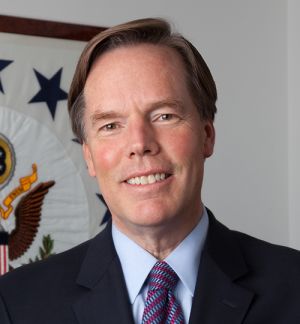
At the NATO summit, the president publicly heaped abuse on America’s closest friends.
During a testy joint press conference at the NATO summit in London yesterday, President Donald Trump and his French counterpart, Emmanuel Macron, argued openly over how the 70-year-old alliance should handle Russia, the Islamic State, and Turkey. When interacting with allied leaders, Trump’s predecessors have generally followed a golden rule: Disagreements with friends are okay—but only behind the scenes, not in public.
Trump, in contrast, seems to relish going after the Europeans in full view of the rest of the world. The on-camera spat with Macron was the latest sign that Trump has brought America’s most important security alliance to the point of crisis. And the president either doesn’t know or doesn’t care what he’s done.
If the North Atlantic Treaty Organization had reached its 70th birthday under any of the previous 12 presidents, the celebration would have occurred in Washington rather than London. The “Washington treaty” was signed in April 1949, at a dark moment in the early Cold War when a Soviet invasion of Western Europe was not a far-fetched possibility. The United States has always been the most powerful NATO member, and every American president until Trump has been the alliance’s natural leader.
Instead, Trump has been NATO’s loudest critic. He has cast America’s military allies primarily as a drain on the U.S. Treasury, and he has aggressively criticized America’s true friends in Europe—democratic leaders such as Macron and Germany’s chancellor, Angela Merkel—even as he treats Vladimir Putin, Xi Jinping, Kim Jong Un, and other authoritarians around the world with unusual tact. He describes the European Union, whose membership overlaps significantly with NATO’s, as a competitor rather than the close global partner it has been to every recent American president.
Burns, Nicholas. “Trump Violates Diplomacy’s Golden Rule.” The Atlantic, December 4, 2019





